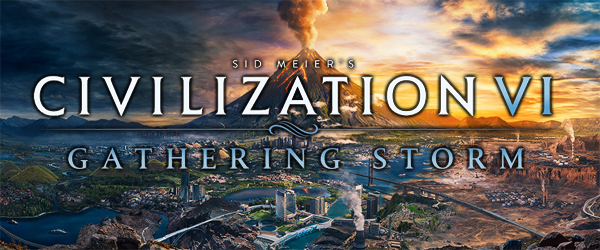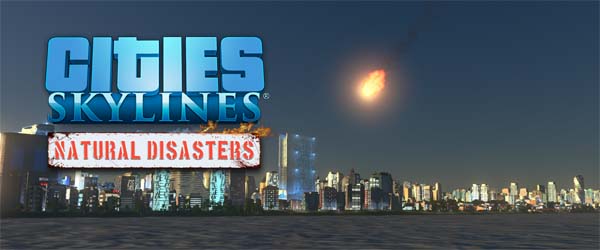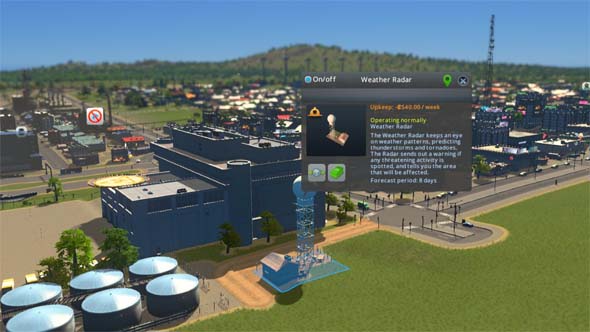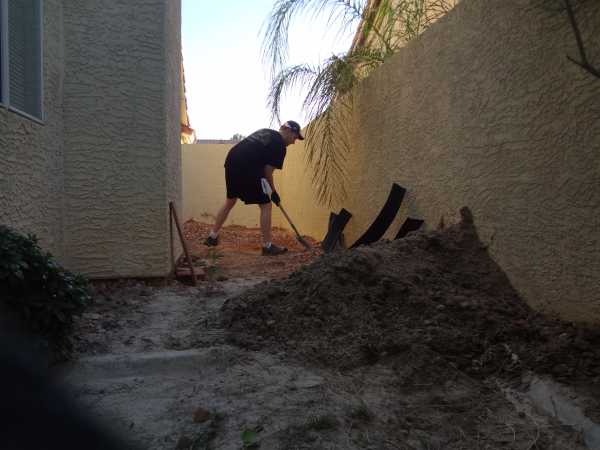
This past weekend, I put up my review of Gathering Storm, the new expansion for Civilization VI. The overall summary is that I felt very "meh" about the game's headline features, but was actually impressed by how the smaller, more subtle changes really improve the underlying game. That review focused on a lot of the high-level concepts of the game, and was already starting to get rather long (my readers all know how verbose I can be). I decided to cut a lot of my smaller criticisms of individual mechanics or functionality out of that review, and save them for their own separate post.
So now that you all know how I feel about the expansion overall, here's some of my smaller nags and nitpicks (and suggestions for resolving them) that I hope can be resolved by some post-release patches.
Table of contents
Civs who don't pollute should gain Diplomatic Favor
[More]
648e5396-2c29-4d24-8cbc-3a47e3e48539|1|5.0
Tags:Sid Meier's Civilization, Civilization VI, Civilization VI: Gathering Storm, weather, disaster, flood, world congress, diplomatic favor, strategic resource, oil, iron, coal, user interface

It's refreshing to see a video game (of all things) take seriously the second greatest existential threat to civilization (after nuclear weapon stockpiles), while governments (particularly here in the United States) fail to even acknowledge that it's real. I was honestly a little bit surprised to see anthropogenic climate change be the focus of an entire expansion to Firaxis' Sid Meier's Civilization VI. Firaxis has been playing very "politically correct" with the game in its past two iterations. Civ IV, if you remember, included slavery as a mechanic that allowed players to kill population in exchange for a production boost, and it included leaders like Joseph Stalin and Mao Zadong. Civilization III allowed collateral damage from city sieges that would kill population, destroy infrastructure, and potentially reduce wonders of the world to mere ruins. Civilization II allowed democratic congresses to overrule the choices of the player. And Civilization: Colonization actually required you to draft citizens from your cities into soldiers to fight wars.
Politically sensitive concepts like slavery, and characters like Joseph Stalin, have been in Civ games before,
but Civ V and VI have played things very safe and controversy-free with most of their content.
Civilization V and VI have dialed back from such concepts and leaders, as well as other "politically sensitive" topics in favor of diversity, inclusiveness, and a more rose-tinted vision of human history that tries to pretend that things like slavery, colonialism, opium wars, and the Holocaust didn't happen. I get it. They're going for a more optimistic vision of humanity that celebrates our achievements while overlooking the incalculable amount of [often unnecessary] suffering that came at the expense of many of those achievements.
So to see Anthropogenic Global Warming not only be included -- but to be the headline feature -- is surprising. I mean, I don't think it's a politically or culturally sensitive topic, nor should it be to anyone else if we lived in a rational world. It's the reality that we live in -- plain and simple. Nevertheless, it's a brave and important gesture from 2k and Firaxis. Anthropogenic climate change is certainly the second greatest threat to human civilization after our frightful stockpile of nuclear weapons -- or maybe an asteroid impact, but that is exceedingly unlikely to happen. It's an issue that needs to be a part of the cultural conversation, and it is perhaps the biggest price that we (as a civilization) are going to pay for the hubris of our unsustainable growth. It's a problem that every nation in the world needs to face, and solving that problem should be part of any game that attempts to simulate or systematize modern politics.
Anthropogenic climate change is one of the most serious problems threatening real-life civilization.
That is why I'm rather disappointed that the actual implementation of global warming in Civilization VI: Gathering Storm is a bit lackluster and un-apocalyptic.
The greatest existential threat to civilization is civilization
Climate change in Civilization VI: Gathering Storm just doesn't seem to be quite as devastating [globally] as it is in real life. Basically, raising the global temperature will have three effects.
- Increases the frequency of weather-related disasters,
- Melts polar ice caps,
- Floods certain coastal tiles.
Many disasters are trivially managed by leaving a builder or two (with 1 charge) to repair pillaged tiles.
The melting of the polar ice is actually a benefit, as it provides easier routes for naval units if canals aren't available or useable. The other two will cause problems for every player, but I've found them fairly easy to manage (at least on the Emperor difficulty that I usually play on). Disasters will typically pillage tile improvements and districts, but a severe disaster may also outright remove improvements, and may even kill points of population.
... [More]
4b253bea-180f-4b51-bee0-8ae99652603e|0|.0
Tags:Sid Meier's Civilization, Civilization VI, Civilization VI: Gathering Storm, weather, disaster, pollution, carbon dioxide, greenhouse gas, fossil fuel, climate change, global warming, flood, volcano, world congress, diplomatic favor, strategic resource, aqueduct, encampment, skirmisher, courser, cuirassier, pikeman

Civilization VI's new expansion "Gathering Storm" has been out for a week now, and I've been trying to play it as much as I can. There's a lot of new features, and several genuine attempts to change how the game is played -- with varying degrees of success. I wanted to take some time to share some of my initial experiences with the game, in the form of some tips that I have for playing with the new features and rule changes.
Disclaimer: I'm writing this less than a week after the expansion came out. I've only had a chance to play a few games, and I'm not totally well-versed or experienced with the new mechanics and rules. I may get some things wrong. If so, feel free to let me know in the comments!
... [More]
10bf71d4-887e-485e-8377-1b9a2eab2e7b|0|.0
Tags:Sid Meier's Civilization, Civilization VI, Civilization VI: Gathering Storm, weather, disaster, Liang the Surveyor, builder, dam, volcano, hurricane, tropical storm, drought, flood, tornado

Cities: Skylines has always been a game that takes some different approaches to city builder gameplay. The base game explored how a city's geography can influence the development of the city, and also put a particular emphasis on designing efficient transit infrastructure by allowing the player incredible freedom to construct your own roads, highways, and interchanges, rather than relying on prefab ramps and over/under passes. None of these concepts were new to city builders, but Skylines added nuance to them and made them much more active elements of gameplay.
Its newest expansion DLC, Natural Disasters, follows suit. This is a very difficult expansion to review because its content - by its very nature - is random and unpredictable. Natural disasters aren't new to city builders. Disasters were a popular component of the old SimCity games, as many players enjoyed building up their beautiful metropolises only to unleash earthquakes, tornadoes, meteor impacts, and even alien invasions and dinosaur attacks and watch it all burn. Now Skylines has support for this fan-favorite SimCity feature, but it takes this commonplace feature in some new and interesting directions.

Installing early warning and detection systems will give you advance notice when a disaster is imminent.
Most notably, Cities: Skylines' take on disasters puts emphasis on preparation for disasters, rather than on the chaos of the disaster itself and the clean-up in its aftermath. Like with its SimCity forebears, disasters are something that you can toggle on or off in the game's menu, and you can also adjust their frequency. When enabled, you'll encounter disasters of various flavors ranging from forest fires to lightning strikes, to tsunami and meteor impacts. You'll have to make sure that your city is protected by preventative measures, and that it's protected against these eventualities.
Early-warning systems like firewatch towers, weather radar, and space telescopes can warn you about forest fires, storms or tornadoes, or even incoming meteors (respectively), and can mean the difference between your citizens having enough time to evacuate, or half your population being buried under rubble. You'll need evacuation shelters for you citizens to escape to, and each shelter needs to built long enough in advance for it to be stocked with supplies of food, water, and other essentials (which must be pulled from your city's economy or imported). And lastly, you'll need radio towers to warn your citizens to get to their designated shelters.
Building emergency shelters, stocking them with supplies, and planning evacuation routes will protect your citizens.
You can also create planned evacuation routes similar to bus routes that will pick up residents and take them to a shelter. I had some trouble getting these routes to work properly though. The fact that the buses are dispatched when an evacuation is activated means that they often create a log jam on your roads as they all funnel out of the shelter. I also had issues with the buses apparently not picking up people who were at more distant stops on the route, since the areas along the route that were far from the shelter never managed to evacuate. Maybe there's some trick to getting these routes to work properly that I just haven't found yet. But this does highlight one problem with the expansion: its new systems are not very well documented or explained... [More]
9ae61f59-31e1-483a-bb60-03cd1377e8b2|2|3.0
Tags:Cities: Skylines, Cities: Skylines: Natural Disasters, Colossal Order Ltd., Paradox Interactive, Steam, Steam Workshop, city simulation, DLC, expansion, disaster, natural disaster, emergency, evacuation, fire, earthquake, tornado, meteor, tsunami, flood
 Nothing like a mere two hours of physical labor in the early evening desert sun to make me appreciate being a software engineer who works inside with a computer, instead of outside with a shovel.
Nothing like a mere two hours of physical labor in the early evening desert sun to make me appreciate being a software engineer who works inside with a computer, instead of outside with a shovel.
If you've been a frequent reader of this blog, then you may remember a post from mid-July in which I talked about a freak monsoon hail storm that completely flooded out my pet tortoise's burrow, nearly drowning the poor baby animal. I've since had the burrow blocked off to keep little Koopa out of it until I could modify or reconstruct it to be a little bit safer. In the meantime, I've been bringing the tortoise in the house to sleep during nights with heavy rain to protect the little fella from being left out in the elements and getting sick.
I've been debating with myself about whether or not the existing burrow could be retrofitted to be more safe, but I've finally decided that I want to just reconstruct the whole thing to make sure it will be safer. This week, I broke ground on the new burrow.
I took a trip to the local STAR Nursery this weekend to get some dirt and ground soil, some bricks, work gloves, and other various supplies. I had to ask a friend to take me to the store with his truck so that I could buy a large, 1/2 ton bag of dirt. For liability reasons, the store wouldn't sell the dirt to me when I came with a van. The big bags of dirt require that you have a flatbed truck.
I started by trying to move as much of the rocks out of the way of the planned construction site and then dug up and filled-in the original burrow, reclaiming the bricks and wood board used to construct it. [More]
|

| 12 | | | | | | | 60 | | 11 | | | | | | | 55 | | 10 | | | | | | | 50 | | 09 | | | | | | | 45 | | 08 | | | | | | | 40 | | 07 | | | | | | | 35 | | 06 | | | | | | | 30 | | 05 | | | | | | | 25 | | 04 | | | | | | | 20 | | 03 | | | | | | | 15 | | 02 | | | | | | | 10 | | 01 | | | | | | | 05 |
|